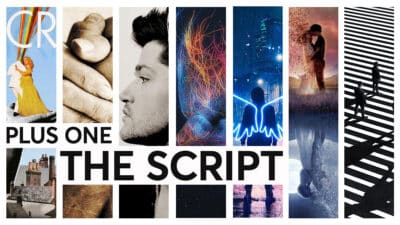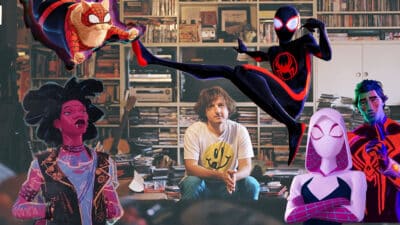Theatre
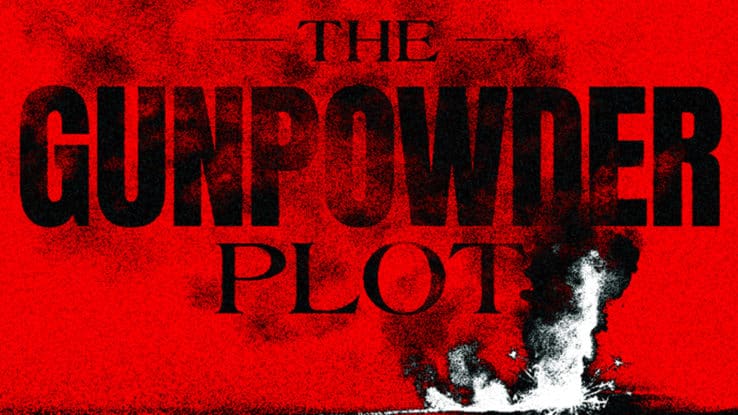
Interview
Danny Robins on reigniting The Gunpowder Plot
Ghosthunter, podcaster and historian Danny Robins takes us deep under the Tower of London for a new Layered Reality experience that’s bringing history to life like never before
Halfway through our chat with Danny Robins, all the lights go out. If you’ve listened to his podcasts, The Battersea Poltergeist and Uncanny, or watched his award-winning play, 2:22, you won’t be too surprised. “It’s impossible to not feel constantly haunted when you’re doing this!” he laughs, talking to us from an underground office in London’s Tower Vaults, a converted theatre space that sits directly beneath Tower Hill.
Over 400 years earlier, the scene above Robins’ head would have looked very different – as Catholic mercenary Guy Fawkes and his fellow co-conspirators were dragged from the Tower and brutally executed after failing to blow up King James I in the House of Lords.
It might be the perfect set-up for another ghost story, but the story Robins wants to tell now is one rooted in reality – writing a new immersive theatre experience that uses live actors, VR technology and multi-sensory special effects to take audiences right back to 1605. The Gunpowder Plot launches at the Tower of London on 20 May 2022 and is set to be the biggest attraction to open in the capital since the Shard.
As The Gunpowder Plot prepares to welcome its first guests, we caught up with Robins to talk Guy Fawkes, ghosts and the limitless possibilities of immersive theatre.
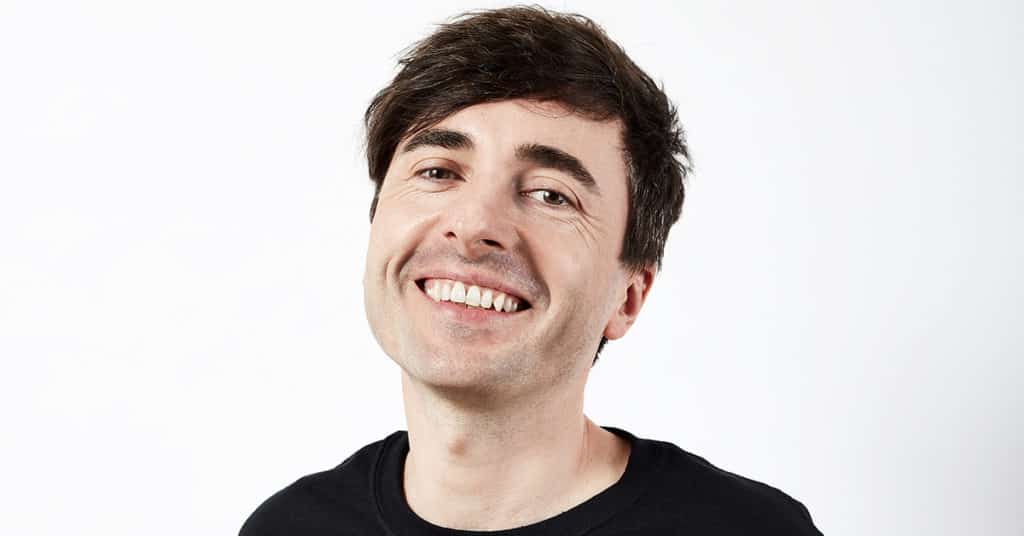
How is everything coming together with the production? It must feel like another world coming to work in the Vaults every day!
It really does. But it’s exciting. This is such a thing of many parts, you know, it’s got actors, it’s got virtual reality, it’s got all sorts of different kinds of tech. It feels like we’re literally building Jacobean London in these amazing historic vaults. Just yesterday we were recording the Guy Fawkes virtual reality stuff [with Harry Potter star, Tom Felton].
You’ve been experimenting with different forms of storytelling for a while now, but this project is so completely different from anything else – part theatre, part cinema, part theme park ride – that must have been a big draw for you?
Absolutely. I think the one thing that has driven me throughout all the work I’ve done in recent times is the idea of the “event”. Going right back, a big reference point for me is Ghostwatch. The excitement of that big live event, and that destination viewing experience, is actually something that we’ve sort of lost and become separated from and in our multi-channel streamer world. I can see a nostalgia for that creeping back in with recent TV stuff like Yellowjackets and The Book Of Boba Fett, shows that drop like serials and build that interest across multiple weeks, but it’s all too rare. And so I think with the podcasts, and with 2:22, and with The Gunpowder Plot, there’s a kind of desire for this to feel like a really, really big night out. With the podcast, you share it with your friends. With 2:22 you talk to your mates about it afterwards in the pub. I was told by The Noel Coward theatre that as well as breaking their box office record for a new play, we also broke their bar record!
How do you go about eliciting that kind of a response from audiences for something like The Gunpowder Plot?
I guess it’s all about tapping into what I would want to experience myself. I’ve got memories of childhood of going to see certain things, seeing an RSC play where it rained on stage, watching these amazing shows by the late Ken Hill, who did The Chronicles Of Narnia, and these memories are etched on my brain forevermore. These experiences felt like they transcended the format of a play and became something magical, and I think what we’re doing here is probably the apex of that feeling. It’s an incredible experience using so many different forms of storytelling – you’ll be confronted by actors, right there in the space, playing these characters, but you’ll also go on these incredible virtual reality journeys.
Why the gunpowder plot? What was it about this particular chapter of history?
It feels like it’s such a seismic moment. It’s the revolution that never happened. And particularly, I think, it speaks to a very British sort of identity as well. We’re a nation of rebels – and that runs all throughout history, from the peasant revolts and the Chartists to the poll tax riots. We don’t always put our energies in the right place, and sometimes it’s kind of self-defeating, but there’s this desire to not trust authority, and to fight back against it. I think Guy Fawkes really embodies that. And I think it has a lot of contemporary resonances too. This is a society that was completely divided, and it’s a society that was just recovering from plague… You get the sense of these people being young activists that wanted to change the world. They felt they were being persecuted and they wanted to change their lives and change the lives of those they loved. And they chose to do it in the most extreme way possible. At a time when young people are growing up facing climate change and endemic racism, I think these are still really important questions. How far can you take it? When is violence justified? Can violence ever be justified?
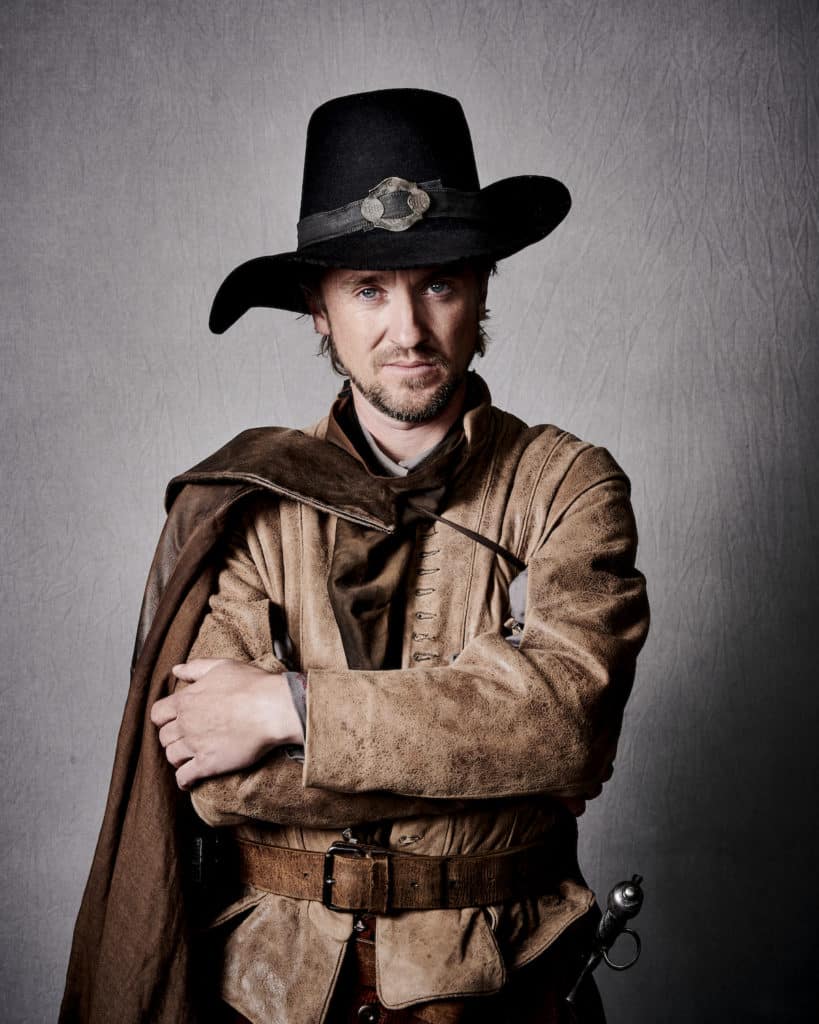
We kind of grow up thinking about Guy Fawkes as this dummy we stuff on a bonfire every November, so that idea of him being a young activist has definitely been lost I think. How important was it to you to bring out the human story behind the history lesson?
I think it’s really important because we’re dealing with real people here. And I think there’s something about the proximity of immersive theatre that really hammers home that realness as well. You’re literally going to be face to face with somebody in a room. Our take on this is that you, as the audience, are enlisted by King James as part of a spy network trying to infiltrate the Gunpowder Plot – which is something that did happen in real life, with agents infiltrating Catholic networks. Eventually you’ll reach a point where you meet the plotters and your loyalties are torn. Do you remain with the crown or do you side with the plotters? These are complicated situations. But underneath all that you have these real people who were living and dying, seeing people that they loved executed and imprisoned.
How important is the location? There’s so much real history in the walls – which comes back to some of the things you’ve discussed on your podcast about buildings retaining certain feelings and memories.
I know, it’s really interesting. And it’s lovely actually. This is the first time I’ve written for a building, so having that constantly in mind has been really fantastic. Just to walk into this place, to be rehearsing opposite the Tower of London, is mind blowing. It’s an exquisitely beautiful landmark, isn’t it? And, yeah, I think for audiences it will feel very compelling and powerful too, to be in the place where it happened. It’s a deeply resonant place.
There are so many moving parts to The Gunpowder Plot – you’re writing multiple storylines for live actors and VR and thinking about how the audience moves through the physical space – has it been as challenging as it sounds?
It’s a very strange thing for me because I’m a control freak. I like to be across every minute detail, and you just can’t control this to that degree. One group will go through with a certain actor being the main character, another group will go through with a different actor, so you’re not writing and tailoring everything to one voice. And also just the timings involved are incredibly specific to make this show work, so that’s a challenge as well. And, and then there’s the whole tech side of it. There’s the motion capture, the volumetric filming… all these words I’m just learning by the way! [laughs]. Bringing a character to life in virtual reality is very different to working on TV, for example, because you can’t edit. You’re stuck in the same space with this person, you can move around them, and you can come right up and see them.
What’s the other side of that? It must give freedoms for storytelling that you haven’t had before?
Absolutely, and that’s what’s so exciting. I’m a real advocate of immersive theatre now – especially for generations that are used to getting things whenever they want it. The current generation has kind of grown up experiencing television through streamers and music through things like Spotify, so it almost seems weird and old-fashioned now that they have to turn up at a theatre at 7.30pm at night and watch a play. Immersive theatre offers theatre on demand. You can go in at a time of your choosing with a group of friends and go for the experience. I think there’s a real place for that. I think it’s a wonderful, magical thing to be sitting in a theatre with a group of people when the lights go down and the magic happens, but I do think that this offers something brilliantly unique. For me, it has the power to make us childlike again. It’s the magic lantern for our age
It feels like the timing is perfect now too, just as Uncanny and The Battersea Poltergeist felt so right for everyone who listened during lockdown.
I think the thing about lockdown was that we were robbed of social contact but we were also robbed of a lot of excitement too. Our lives became very repetitious, very mundane, and we had to kind of exist through our devices. Essentially we were watching lots of TV listening to podcasts. So to come out be in a real world space with real people just feels so important. With 2:22 it was the kind of excitement that made you want to grab the person next to you to share that level of fear and thrill and adrenaline, and I think it’s the same with Gunpowder. It lifts you out of your life and transports you to a different place.
Were you surprised at the level of success that your podcasts had – that they were able to connect with so many people during lockdown?
It blew me away. You know, I made The Battersea Poltergeist in my shed at the bottom of my garden, and then a few weeks later I was fielding calls from Hollywood and watching this amazing community grow around it. I think for me, that’s been my proudest achievement, building an audience of people who enjoy experiencing it together. And also watching how diverse that community is. It doesn’t get much more polarised than people who believe in ghosts and people who don’t… that’s about as divided as Brexit. But it’s been incredibly respectful and people have been enjoying it in different ways. Now Uncanny has its own hashtag and that community are having their own Zooms and sharing stuff on social media. I think it was something we all desperately needed.
I suppose the downside of that community is that everyone must keep coming up to you to tell you their ghost stories…
Yeah, I feel like I’ve become the equivalent of the doctor who everyone wants to talk to about their rash… I was in a meeting with a BBC finance person the other day and he was telling me that he had a poltergeist in his house [laughs].
But I feel very blessed by it too. I’ve received hundreds and hundreds of ghost stories and I’m always struck by how brilliantly eloquent they are. I think that comes from the level of fear that people feel. I think if you’ve been frightened to that degree, you remember the details in such vivid terms. So I get all these emails that read like Stephen King novels! I think also a lot of people are telling me this story for the first time, and sometimes I’m the only person they’ve told it to. That’s often because there is still a certain stigma around ghosts, as well as the fear afterwards of whether people will laugh or mock, or in the worst cases, question your mental health. So I feel like I’m creating a kind of safe space. It’s the equivalent of the confessional box. I think it’s quite therapeutic, actually.
Are you hoping to do more podcasts after The Gunpowder Plot? You’ve mentioned already that you’re working on another long-form story.
Yes, I think that’s probably the next podcast project that we will be releasing later in the year, which is another story told through a mixture of drama and documentary. And hopefully, there will be a few bonus Uncanny episodes before then as well. We’re keen to stir the pot and put a few more stories out there.
More ghosts?! [as the lights flicker on and off]
The ghosts have been good to me in the last year! I think there’s clearly a real collective fascination with ghosts at the moment. And I think you can kind of draw parallels to post-WWI and post-WWII where times of chaos and uncertainty and death reminded us of our mortality. Now we have the pandemic, the war in Ukraine, and also climate change, which is this kind of existential threat to us all. So I think there’s a real boom in horror at the moment, and it’s really exciting and fun to be part of that.
And I think that I’m quite interested in making horror for people to think they don’t like horror too. I feel like horror is a young person’s genre, in many ways. I think you hit a point where, particularly when you become a parent, you don’t want to see all that gore and loss and you’re particularly affected by things like that. My wife is the biggest scaredy cat ever, and she wouldn’t even listen to my podcast… But she came to 2:22 and she enjoyed it. So I think I’m quite interested in that, because I think it’s very exhilarating to be a bit frightened.
Have you changed your own relationship to horror, and to the supernatural, over the last few years?
I sort of feel like I am still a sceptic who wants to believe, but I’m still very driven by that. I love the idea of magic. I love the idea that there’s something more to our universe that we don’t understand yet. And I think I’m also really driven by a desire for death not to be the end.
Would you ever want to take the storytelling technology of The Gunpowder Plot and combine it with horror?
Well yeah, I think I’d be really interested in exploring the horror genre through immersive theatre and virtual reality. For me, I was such a history buff as a kid I just loved history, and virtual reality means you I can go to the Colosseum, or sit on a Viking longship, or be on the beaches of Normandy on D -Day. To harness that, and use that in an experience, is just incredible. But yeah, you know, you could also use this as a way of bringing existing fictional stories to life as well, especially for horror. The possibilities feel endless.
The Gunpowder Plot opens on 20 May 2022, and is currently booking until September. Find tickets here.





